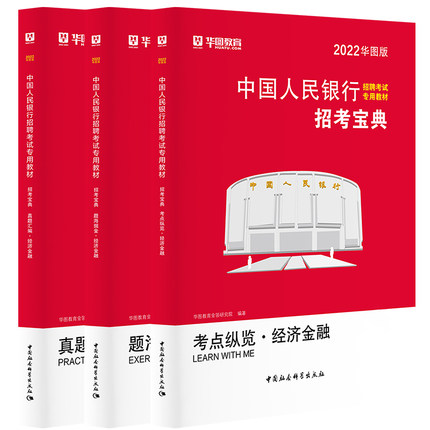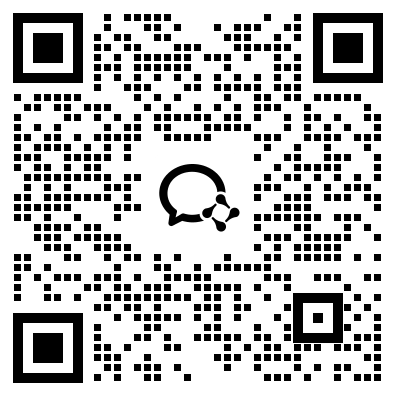Passage 5
When Mihaly Csikszentmihalyi interviewed 91 of the world’s most successful people (including 14 Nobel Prize winners) in the 1900s to see if he could identify commonalities between them, one prominent thing he noted was that they are all incredibly complex human beings. What does that mean? It means that, as individual, they were both differentiated and integrated. They were differentiated because they had taken it on themselves to navigate the abundance of the world and expose themselves to it, making them a unique amalgamation of the different things they had absorbed and experienced; they were integrated because they and also done the work to make sense of this diverse absorption into a coherent whole.
Another way to frame is would be to see differentiation as the process of discovering individual values and integration as the narrative/the meaning that drives those values into day to day actions.
There are many people who are integrated but not differentiated, and their problem is mostly that they haven’t really done the work to expose themselves to the complexities surrounding them. They have been sucked into the ideologies to their family, or culture, or culture, or political affiliation, and they are seemingly happy to exist there. To them, it’s easy to ignore the excess noise in the modern world because they simply ignore it by default. But deep down, there is still emotional conflict because they know that they aren’t really living a life that’s true who they are and what they could be according to what their own body has experienced living in the world.
Then, there people who are differentiated but not integrated. These people have exposed themselves to the different corners of the world, picked out the values that represent their individuality, but they have a hard time making it all cohere. The narrative structure that holds their life together is weak and the meaning of it all, fragile. Here, the conflict is less that they aren’t living a life that’s true to what they know deep down, but more so, it’s that they can’t act on what they know in their daily life. They get sucked up by their distractions, addictions, or whatever else gets in the way of applying knowledge to action. And none of this is helped by the fact that this complex, abundant world demands so much of them. Many in this category often carry unresolved problems from childhood/adolescence.
People often find themselves with a bottleneck where they identify a surface-level issue as the cause of their inability to do what they want. Sometimes, they’ll blame it on the company they are working for or the lack of credentials in their life. Other times, they’ll be looking for better productivity tools or a different lifestyle. Occasionally, these bottlenecks are indeed what hold them back, but usually they are just symptoms of deeper, thornier problems that our mind knows we aren’t ready to handle yet so it temporarily uses a false reason to conflict itself, driving us towards uncertainty and instability that, over time, begins to play with our sense-making abilities.
The question, of course, is what can we do about this? And the answer, as I see it, is both simple and frustrating at the same time: It’s to cultivate awareness-which is essentially another way saying that we all have to become our own therapists, looking for ways we get in our own way and mentoring ourselves when the occasion calls. While there is a world filled with outside guidance, the truth is that the only person who can constantly look out for us is the person we see in the mirror. That’s the only person who is always watching, and that’s the only person who can take improved action based on immediate feedback.
People do all sorts of things to cultivate awareness. Some swear by meditation, others see professional, a few yet call on their friends and family for support. All of these can be effective. But at its core, awareness is about observing your emotional experience and not running from it – to see it clearly and objectively and, sometimes, painfully so you can first accept it and then decide what you want to do with it.
51. What is the deep reason for people who find themselves with a bottleneck? ( )
A. They lack credentials in their own life.
B. Their mind uses a false reason to conflict itself, driving them towards uncertainty and instability.
C. They lack credentials in the company they working for.
D. They need to find better productivity tools or a different lifestyle.
【答案】B。根据第五段 People often find themselves with a bottleneck where they identify a surface-level issue as the cause of their inability to do what they want.可知他们认为一个表面的问题是导致他们不能做他们想做的事情的原因。根据 Sometimes, they’ll blame it on the company they are working for or the lack of credentials in their life. Other times, they’ll be looking for better productivity tools or a different lifestyle.可知他们有时候会责怪就职的公司、责怪自己缺少生活资历,有时候会寻找更好的生存平台或者不同的生活方式。选项 A:生活中缺少资历;选项 C:在就职的公司他们缺少资历;选项 D:他们需要找到更好的生产工具或者一种不同的生活方式。选项 ACD 都是他们面对瓶颈期会选择的处理方式,但是并非出现瓶颈期的本质原因。选项 B:思想上使用错误的原因营造矛盾,导致他们走向不确定且状态不稳定,是对原文中原因描述的同义替换。故本题正确答案选 B。
52. Which of the following is not the reason why many people are integrated but not differentiated? ( )
A. They ignore the excess noise in the modern world because they simply ignore it by default.
B. They have been sucked into the ideologies of their family, or culture, or political affiliation, and they are seemingly happy to exist there.
C. They haven’t really done the work to expose themselves to the complexities surrounding them.
D. They aren’t really living a life that’s true who they are and what they could be according to what their own body has experienced living in the world
【答案】C。根据第三段 There are many people who are integrated but not differentiated, and their problem is mostly that they haven’t really done the work to expose themselves to the complexities surrounding them. (选项 C)They have been sucked into the ideologies to their family, or culture, or political affiliation, and they are seemingly happy to exist there.(选项 B)To them, it’s easy to ignore the excess noise in the modern world because they simply ignore it by default. (选项 A)But deep down, there is still emotional conflict because they know that they aren’t really living a life that’s true who they are and what they could be according to what their own body has experienced living in the world.(选项 D)可知四个选项都在文中体现。但是题干问的是非原因的选项,根据四个选项在段落中的表达可知只有 C 项描述的是问题本身,而并非原因,后面内容才是对出现这个问题的原因的解释。故本题正确答案选 C。
53. What’s the conflict for people who are differentiated but not integrated? ( )
A. They can’t act on what they know in their daily life.
B. They have a hard time making the values that represent their individuality coherently.
C. They aren’t living a life that’s true to what they know deep down
D. They narrative structure that holds their life together is weak and the meaning of it all is fragile.
【答案】C。根据第三段 But deep down, there is still emotional conflict because they know that they aren’t really living a life that’s true who they are and what they could be according to what their own body has experienced living in the world.可知这里的冲突指的是情感冲突,指生活中的他们并不真实,他们会根据生活环境改变而改变。选项 A:他们不能按照他们在日常生活中所知道的去做;选项 B:他们很难将代表他们个性的价值观统一起来;选项 C:他们的生活并不是他们内心深处所知道的那样;选项 D:他们将生活维系在一起的叙事结构是脆弱的,其意义也是脆弱的。根据原文可知只有 C 项表达出了文中所提到的冲突,故本题正确答案选 C。
54. What is the purpose of Mihaly Csikszentmihalyi interviewing 91 of the world’s most successful people? ( )
A. He wanted to find out what they had in common.
B. He wanted to find out if they had taken it on themselves to navigate the abundance of the world and expose themselves to it.
C. He wanted to find out if they had done the work to make sense of this diverse absorption into a coherent whole.
D. He wanted to find out if they are all incredibly complex human beings.
【答案】A。根据首段 When Mihaly Csikszentmihalyi interviewed 91 of the world’s most successful people (including 14 Nobel Prize winners) in the 1900s to see if he could identify commonalities between them, one prominent thing he noted was that they are all incredibly complex human beings.可知研究的目的是为了找共性。选项 A:他想找出他们有什么共同点;选项 B:他想知道他们是否自己承担了这个任务,去遨游这个丰富多彩的世界,并将将自己暴露在其中;选项 C:他想知道他们是否已经做了一些工作,将这种不同的吸收理解为一个连贯的整体;选项 D:他想知道他们是否都是极其复杂的人类。根据文意可知选项 D 只是 Mihaly Csikszentmihalyi 观察后得出的结论,并非观察目的。选项中只有 A 项表达符合文意,故本题正确答案选 A。
55. What’s the most important way to cultivate awareness? ( )
A. To explore it through meditation.
B. To see your emotional experience clearly and objectively.
C. To seek help from professionals.
D. To call on friends and family for support.
【答案】B。根据末段 People do all sorts of things to cultivate awareness. Some swear by meditation, others see professional, a few yet call on their friends and family for support. All of these can be effective. But at its core, awareness is about observing your emotional experience and not running from it – to see it clearly and objectively and, sometimes, painfully so you can first accept it and then decide what you want to do with it.可知培养途径是多样的,但是最核心的是不逃避它,而是清晰、客观地看待它,虽然有时还会很痛苦,但是这样你就可以先接受它,然后决定你想怎么做。选项 A:通过冥想;选项 B:清晰、客观的面对情感体验;选项 C:获得专业帮助;选项 D:获得亲朋好友协助。选项 ACD 都是有效的方式,但不是最核心的最重要的,只有 B 项提到了原文中所表达的不逃避、清晰客观的面对。故本题正确答案选 B。











